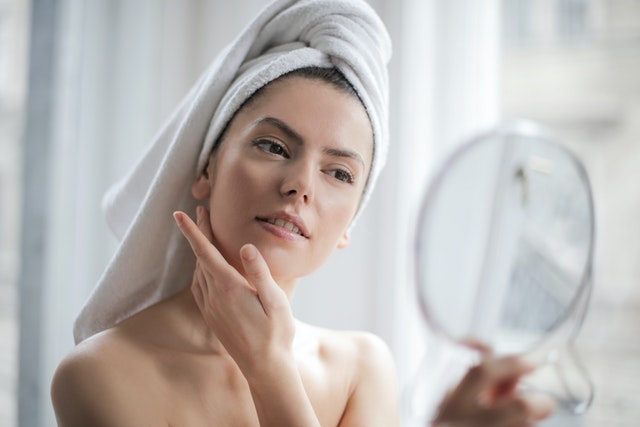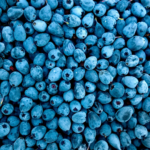When we think about skin health, we usually think of hydrating and refreshing our skin with topical creams and lotions, but nourishing our skin from the inside is just as important. Despite the fact that our skin is our largest organ, it receives nutrition after other essential organs.
Cutting processed carbs from your diet can help. Low-glycemic diets have been shown in studies to aid with skin issues including acne. Eat more whole grains, legumes, and nuts, and avoid sugar as much as possible.
Antioxidants and other phytochemicals, which our bodies can obtain from specific diets, are also required by the skin.
We can’t stop time from passing us by, but we can make it go as smoothly as possible, and a lot of it has to do with what we eat. So, what can you consume to keep your skin looking young and radiant?
Tomatoes
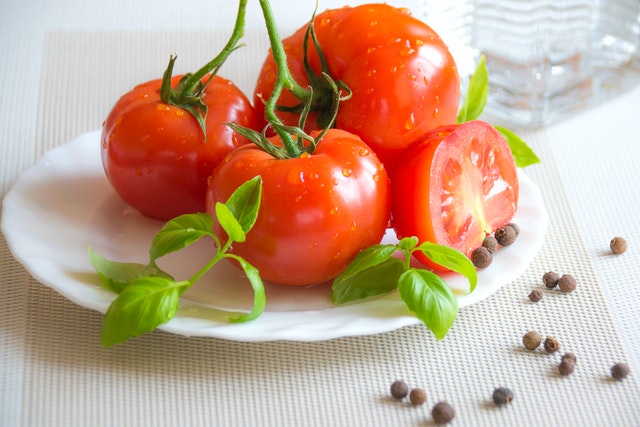
Tomatoes contain all major carotenoids, including lycopene, lutein, and beta carotene, in addition to a high level of vitamin C. These shield your skin from the sun and can even prevent wrinkles.
Carotenoids protect your skin from the sun by having light-absorbing capabilities and antioxidant benefits. They decrease inflammation by regulating UV light-induced gene expression. This improves elasticity and moisture, which helps skin texture and decreases age spots, preventing premature skin aging.
Consider pairing tomatoes or other carotenoid-rich meals with cheese or olive oil while eating them. The lipids in these foods will aid in the absorption of carotenoids by your body.
Avocados
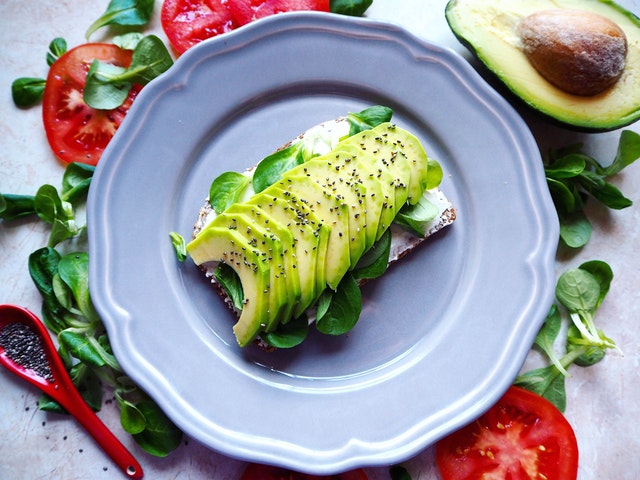
According to one study, avocados provide a beneficial monosaturated fat for skin health. Humans cannot produce this fat and must obtain it from their diet. It aids in the absorption of vitamins A, D, E, and K.
Avocados contain a high amount of vitamin E, which, when paired with vitamin C, helps to protect the skin from UV damage and free radicals. Vitamin C alone aids in the production and maintenance of collagen, a structural protein that maintains the skin firm and healthy.
Avocados also include the antioxidants lutein and zeaxanthin, which have been demonstrated to improve skin tone by shielding it from UV and radiation damage.
Green Tea
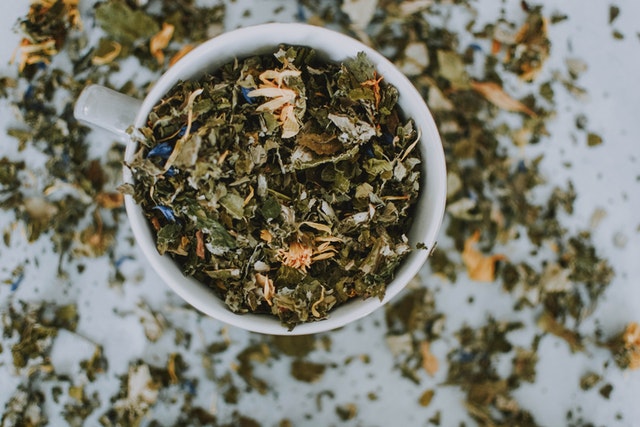
Green tea contains catechins, which aid in blood flow and ensure that the skin receives adequate oxygen. It contains antioxidants that can help protect you from solar damage. Green tea has been demonstrated in studies to reduce skin redness, boost moisture levels, smooth roughness, increase skin thickness and elasticity, and aid in DNA repair. Some doctors recommend the tea to cure acne because it includes polyphenols, which help the body produce less oil.
Tea should be consumed between meals rather than with them, as the tannins in tea can inhibit the body’s capacity to absorb nutrients from food.
Nuts and Seeds
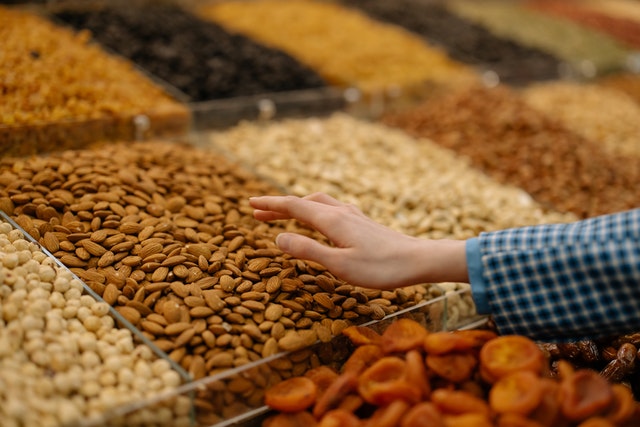
Vitamin E helps to prevent collagen breakdown and cell damage caused by free radicals, which helps to slow down the aging process. Nuts and seeds, notably almonds, peanuts, sunflower seeds, chia seeds, and flax seeds, are high in antioxidants and good fats.
Sunflower seeds, in particular, contain half of the daily vitamin E need. They also provide five grams of protein per serving and a lot of zinc, which helps to reduce cell inflammation, which is a cause of skin aging.
Green Leafy Vegetables
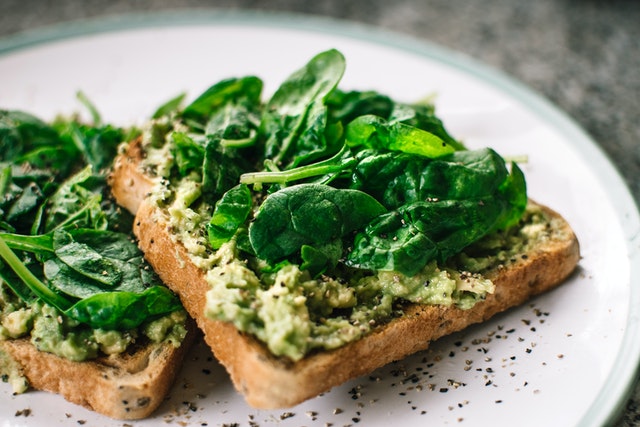
Green, leafy vegetables are beneficial to a variety of biological functions, but they are especially beneficial to the skin. The darker green indicates a larger concentration of antioxidants, which battle free radicals that damage skin cells. People who eat two to three servings of dark, leafy greens each week are less likely to get skin cancer, according to studies.
Their vitamin K concentration, which enhances blood circulation and coagulation, also helps to avoid dark under-eye circles.
Olive Oil
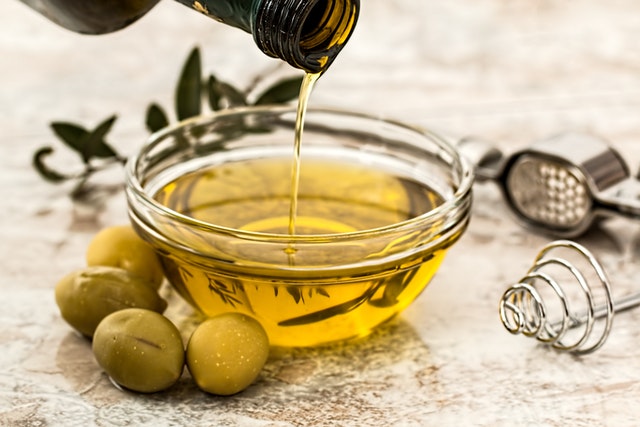
Olive oil also reduces inflammation due to the antioxidants called phenols found in it. Furthermore, a 2012 study found that a high-olive-oil diet reduced the effects of photoaging on the face, which researchers attributed to fatty acids and squalene, chemicals that protect against dryness and free radical damage.
Berries
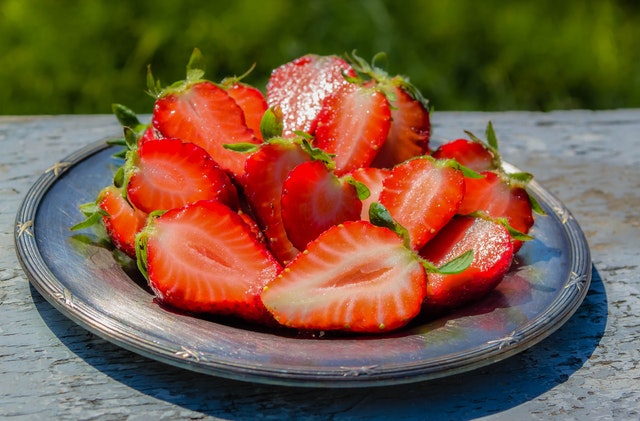
Berries, such as blueberries, strawberries, raspberries, and other berries, are high in vitamin C and antioxidants, which help to strengthen skin capillaries and decrease bruising and spider veins as we get older. There’s a reason they’re called superfoods.
Sweet Potatoes and Carrots
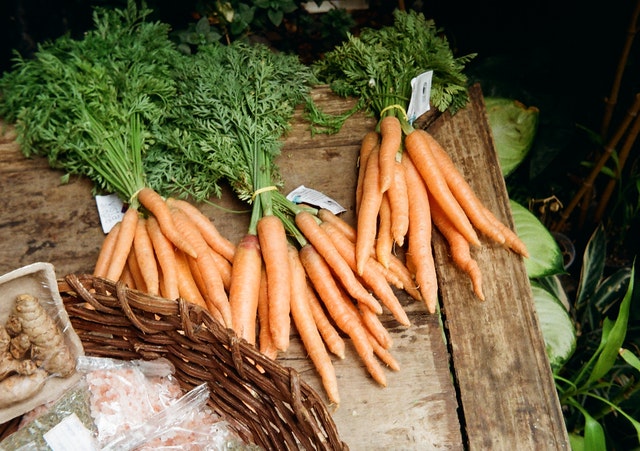
Both sweet potatoes and carrots, like tomatoes, are high in beta-carotene, an antioxidant that can be converted to vitamin A in the body. It protects skin from sunburn, cell loss, and dry, wrinkled skin by functioning as a natural sunscreen.
The presence of beta-carotene in a fruit or vegetable is indicated by its orange color. Mangos, pumpkin, apricots, cantaloupe, and papaya, in addition to carrots and sweet potatoes, contain it.
Carrots, also contain magnesium, which can aid sleep patterns, which is beneficial to skin health. Sweet potatoes, on the other hand, can assist to calm and gently dry oily skin.
Citrus Fruits
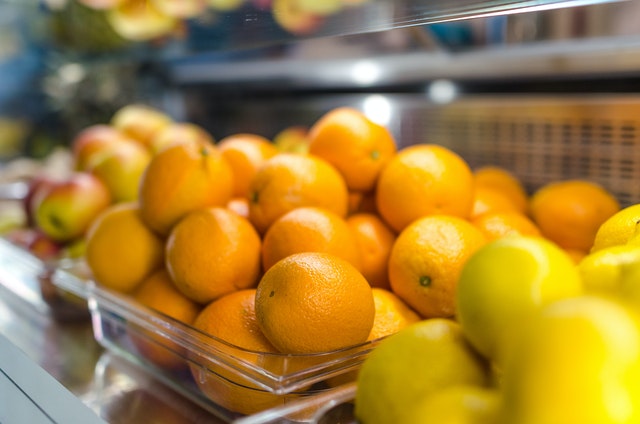
Everyone is aware of the vitamin C concentration of citrus fruits such as oranges, lemons, limes, tangerines, and others. These fruits aid in the reduction of black spots on the skin, the reduction of inflammation, and the improvement of general complexion.
Fatty Fish, Mussels and Oysters
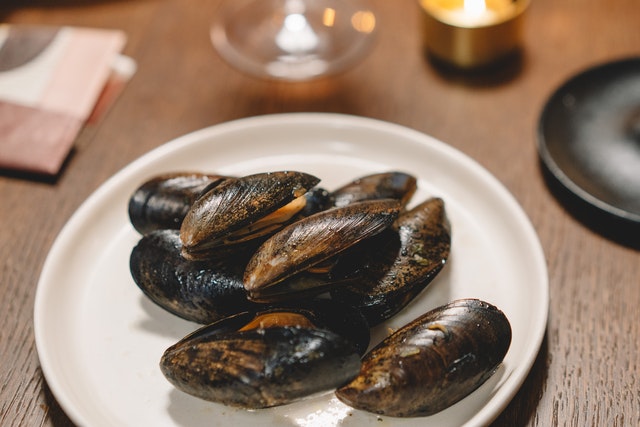
Salmon has long been known for its health advantages, but mussels and oysters also give skin protection. These mollusks have the highest zinc content of any meal, in addition to rich protein and omega-3 fats. Zinc is a mineral that aids in the prevention of acne and other skin disorders, as well as infection prevention.
Of course, if you consume salmon and other oily fish at least twice a week, you’ll minimize inflammation and feed your skin with omega-3 fats. Fish oil has been demonstrated in trials to aid those with eczema, psoriasis, and even lupus.
Coenzyme Q10 is a lesser-known vitamin-like molecule that exists naturally in our bodies and helps to smooth skin texture, which helps to reduce small wrinkles. CoQ10 levels begin to decline in our mid-30s, but eating oily, cold-water fish can help to supplement our natural supply.
Takeaway
Of course, consuming plenty of water can help keep your skin hydrated and clear, and many of the items listed above will provide you with that water. However, it’s not just about what you consume; it’s also about what you stay away from. Keeping coffee and processed sugars out of your diet might also help you achieve a healthy glow.

